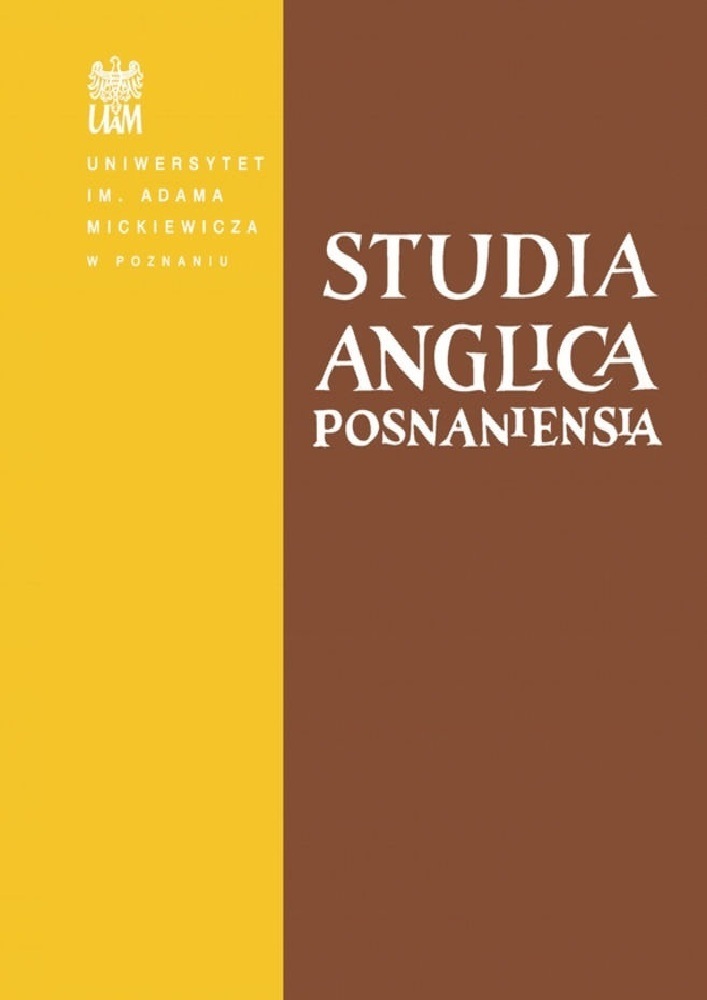Abstract
In this paper we consider a much-quoted phrase published by the essayist Charles Lamb (1775–1834) in the London Magazine in 1822 about a desirable quality in books: that they should be ‘strong-backed and neat-bound’. We identify meanings of modifier neat as evidenced by different communities of practice in early nineteenth-century newspapers, and in particular we present meanings of neat as used in certain Quaker writings known to have been read with approval by Lamb. By this method we assemble a series of nuanced meanings that the phrase neat-bound would have conveyed to contemporary readers – specifically, the readership of the London Magazine.
References
Defoe, Daniel. 1938 [1711]. Defoe’s Review. New York, NY: Columbia University Press.
ECCO = Eighteenth Century Collections Online, https://quod.lib.umich.edu/e/ecco/.
Felton, William. 1796. A treatise on carriages; comprehending coaches, chariots, phaetons, curricles, gigs, whiskies, &c. together with their proper harness. London: William Felton.
Felton, William. 1830. The gem, a literary annual. London: W. Marshall.
Gummere, Amelia Mott (ed.). 1922. Journal and essays of John Woolman. New York, NY & London: Macmillan & Co. Ltd.
Hone, William. 1827. The table book. London: Hunt & Clarke.
Hunt, Leigh. 5–12 July 1823. Among my books. Literary Examiner 1–6: 17–22.
Hunt, Leigh. 1949 [1850]. The autobiography of Leigh Hunt (with introduction and notes by J. E. Morpurgo). London: Cresset Press.
Hyman, Robin (ed.). 1993 [1962]. The Pan dictionary of famous Quotations (rev. edn). London: Grange Books.
Johnson, Edward Gilpin (ed.). 1892. The best letters of Charles Lamb. Chicago, IL: A. C. McClurg & Co.
Johnson, Samuel. 1773. A dictionary of the English language (4th edn). London: for W. Strahan et al.
Kitchiner, William. 1817. Apicius redivivus; or, the cook’s oracle. London: Samuel Bagster.
Lamb, Charles. 1822. Detached thoughts on books and reading. London Magazine 6(July): 33–36.(Reprinted 1833, Last essays of Elia. London: Edward Moxon.)
Lamb, Charles. March 1825. Reflections in the pillory. London Magazine. (Reprinted 1828, Elia: Essays which have appeared under that name in The London Magazine. Second Series. Philadephia, PA: Carey, Lea & Carey.)
Millington, Charles. 1810. The housekeeper’s domestic library; or new universal family instructor. London: W. Flint.
OBO= OldBaileyOnline, https://www.oldbaileyonline.org/.
ODNB = Oxford Dictionary of National Biography, https://www.oxforddnb.com/.
OED = Oxford English Dictionary, https://www.oed.com/.
Scott, Walter. 1821. Kenilworth. Edinburgh: Constable & Ballantyne.
Simpson, John. 1806. A complete system of cookery. London: W. Stewart.
Mrs. Smith. 1810. The female economist. London: Mathews & Leigh.
Talfourd, Thomas Noon, Sir. 1849. The letters of Charles Lamb, with a sketch of his life. London: Edward Moxon.
Talfourd, Thomas Noon, Sir. 1855. The works of Charles Lamb, with a sketch of his Life. Vol. 2. New York, NY: Harper & Brothers London.
Vaux, Roberts. 1817. Memoirs of the life of Anthony Benezet. Philadelphia, PA: James P. Parke.
Watts, Thomas. 1716. An essay on the proper method for forming the man of business: in a letter, &c. By Thomas Watts, of the Accountant’s Office for Qualifying Young Gentlemen for Business, in Abchurch-Lane. London: printed for George Strahan over-against the Royal-Exchange, William Taylor in Pater-Noster-Row, Henry Clements in S. Paul’s Church-Yard, Edward Nutt at the Middle-Temple Gate, and John Morphew near Stationers-Hall. ESTC Number T069328.
Balle, Mary. 2009. What was cooking in the Lambs’ kitchen? The Charles Lamb Bulletin (n.s.) 146: 68–71.
Bauer, Josephine. 1953. The London Magazine 1820–1829. Copenhagen: Rosenkilde & Bagger.
Burness, Edwina. 1986. Charles Lamb, Bernard Barton and the Quakers. The Charles Lamb Bulletin (n.s.) 53: 148–154.
Comfort, Anne Wistar. 1933. Some peculiarities of Quaker speech. American Speech 8(1): 12–14. DOI: 10.2307/3181812
Courtney, Winifred F. 1984 [1982]. Young Charles Lamb 1775–1802. London & Basingstoke: Palgrave Macmillan.
Dent, Robert W. 1984. Proverbial language in English drama exclusive of Shakespeare: An index. Berkeley, CA: University of California Press.
Duguid, Paul. 2010. Brands in chains. In Teresa da Silva Lopes & Paul Duguid (eds), Trademarks, brands, and competiveness, 138–164. London: Routledge.
Edwards, John Richard. 2011. Accounting education in Britain during the early modern period. Accounting History Review 21(1): 37–67. DOI: 10.1080/21552851.2011.548544
Gilbert, T. R. 1951. The Lloyds of Lloyds Bank, an excursion into family history. London: Lloyds Bank Ltd.
Hans, Nicholas. 1966 [1951]. New trends in education in the eighteenth century. London: Routledge & Kegan Paul.
Hull, Simon P. 2010. Charles Lamb, Elia and the London Magazine: Metropolitan muse. London: Pickering & Chatto. DOI: 10.4324/9781315653310
Janda, Richard D. & Brian D. Joseph. 2003. On language, change, and language change – or, of history, linguistics, and historical linguistics. In Brian D. Joseph & Richard D. Janda (eds), The handbook of historical linguistics, 3–180. Malden & Oxford: Blackwell. DOI: 10.1002/9780470756393.ch
Jucker, Andreas H. & Joanna Kopaczyk. 2013. Communities of practice as a locus of language change. In Joanna Kopaczyk & Andreas H. Jucker (eds), Communities of practice in the history of English, 1–16. Amsterdam: John Benjamins. DOI: 10.1075/pbns.235.01int
Lodge, Sara. 2007. Thomas Hood and nineteenth-century poetry: Work, play, and politics. Manchester: Manchester University Press.
Lucas, E. V. 1907 [1905]. The life of Charles Lamb (2 vols, rev. edn). London: Methuen.
Meyerhoff, Miriam. 2002. Communities of practice. In Jack K. Chambers, Peter Trudgill & Natalie Schilling-Estes (eds), 526–548. The handbook of language variation and change. Chichester: Wiley-Blackwell.
Montluzin, Emily Lorraine de. 1998. Killing the Cockneys: Blackwood’s’ weapons of choice against Hunt, Hazlitt, and Keats. Keats-Shelley Journal 47: 87–107.
Moulton, Phillips P. 1971. The influence of the writings of John Woolman. Quaker History 60(1): 3–13.
Nevalainen, Terttu. 2015. What are historical sociolinguistics? Journal of Historical Sociolinguistics 1(2): 243–269. DOI: 10.1515/jhsl-2015-0014
Pratt, Linda & David Denison. 2000. The language of the Southey-Coleridge circle. Language Sciences 22(2): 401–422. DOI: 10.1016/S0388-0001(00)00013-9
Tibbals, Kate Watkins. 1926. The speech of plain friends: A preliminary survey. American Speech 1(4): 193–209. DOI: 10.2307/452519
Wenger, Etienne. 1998. Communities of practice: Learning, meaning, and identity. New York, NY: Cambridge University Press.
